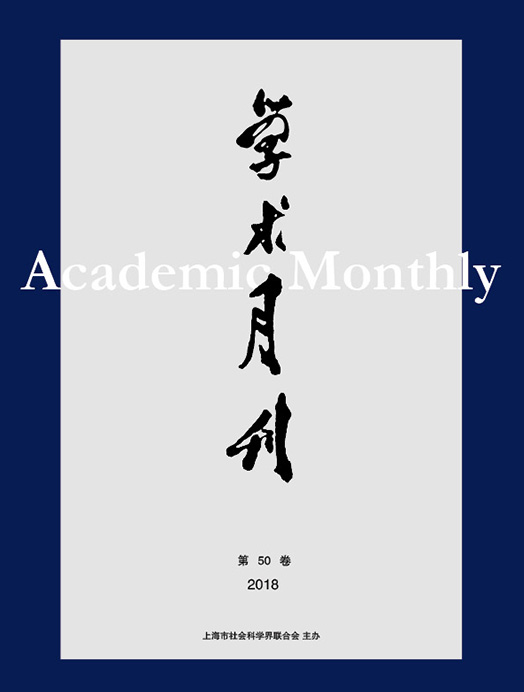Citation:
Jinglun YUE and Ke FANG. From Social Status-based to Human Needs-based Social Policy: the Changes of Chinese Social Policy Paradigm and the Construction of the “Social China”[J]. Academic Monthly, 2019, 51(2): 68-77.

From Social Status-based to Human Needs-based Social Policy: the Changes of Chinese Social Policy Paradigm and the Construction of the “Social China”
-
Abstract
The development of social policy in contemporary China originated from the labor insurance system, which has obvious characteristic of nationalism and social status basis. Since the reform and opening-up, the paradigm of China’s social policy has undergone the transformation from " developmentalism” to social policy in the new age, and the elements of " human needs” have begun to emerge and become an important basis for the evolution of social policy paradigm. In this process, the content and coverage of social welfare have been expanded continuously, but there are still some realistic problems such as fragmentation of welfare system, treatment distinct between welfare beneficiary groups and insufficient supply of basic public services. Since the 18th CPC National Congress, the development of Chinese social policy has entered a new era, the people’s livelihood orientation has been further strengthened, and with the implementation of major livelihood strategies such as " precision poverty alleviation” and " healthy China”, social policy has begun to achieve key breakthroughs in areas such as anti-poverty and health, and the coverage groups and protection levels of social policy have been further expanded and enhanced.
-

-
References
-
Access
-
-
[1]
. . Academic Monthly,
2018, 50(02): 58-69.
-
[2]
LUO Zhe
. . Academic Monthly,
2018, 50(7): 90-98.
-
[3]
Zhiyang LIU
, Lufeng WANG
. The Emergence Logic of Social Enterprise in China. Academic Monthly,
2019, 51(10): 82-91.
-
[4]
Youmei LI
, Jing GENG
. The Paradigm of Knowledge Production in Chinese Sociology. Academic Monthly,
2020, 52(6): 5-16.
-
[5]
. . Academic Monthly,
2017, 49(04): 15-27.
-
[6]
. . Academic Monthly,
2016, 48(12): 149-160.
-
[7]
. . Academic Monthly,
2016, 48(07): 99-108.
-
[8]
Xin JI
, Xiaochun HUANG
, Yamin XU
. A New Research Perspective and Enlightenment on Chinese Social Organizations. Academic Monthly,
2022, 54(6): 125-137, 191.
-
[9]
Guoming SHEN
. Historical Retrospection and Route of Chinese Socialist Culture of Rule of Law. Academic Monthly,
2022, 54(9): 96-110.
-
[10]
. . Academic Monthly,
2016, 48(09): 15-16.
-
[11]
XIE Lizhong
. A Brief Analysis of “Social Theories of China”. Academic Monthly,
2023, 55(9): 102-112.
-
[12]
FAN Xiaoguang
. The Consciousness of Indigenization and Knowledge Production in Chinese Sociologists. Academic Monthly,
2024, 56(1): 115-126.
-
[13]
Yingsheng LI
. The Exploration of Social Policy since the Founding of the Communist Party of China. Academic Monthly,
2021, 53(6): 148-159.
-
[14]
Zuoxiang LIU
. Constructing China’s Social Order with Multi-norm and Co-existence and Co-government under Rule by Law. Academic Monthly,
2020, 52(5): 102-112.
-
[15]
Yuefei WU
, Jun WEN
. Going back to “Good Society”: Rebuilding “Needs-based” Normative Sociology. Academic Monthly,
2022, 54(2): 113-130.
-
[16]
. . Academic Monthly,
2017, 49(08): 30-41.
-
[17]
LI Site
. . Academic Monthly,
2018, 50(7): 119-132.
-
[18]
Zhixiang JIAN
, Rong MA
. Human Language and Social Development. Academic Monthly,
2021, 53(12): 121-138.
-
[19]
Jitong LIU
. The Social Construction of “Social Welfare Consensus” in China and the Goal of Modern Socialist Welfare State. Academic Monthly,
2022, 54(6): 73-84.
-
[20]
Shaojie LIU
. The Communication Practice and Development Logic of Network Society in China. Academic Monthly,
2022, 54(8): 105-117.
-
-



 沪公网安备 31010102003103号
沪公网安备 31010102003103号 DownLoad:
DownLoad: